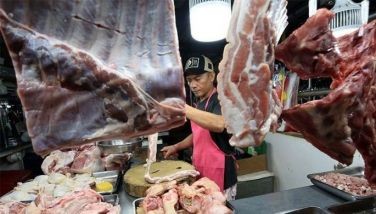Rationalizing the insurance industry
Standard & Poor’s stable outlook on both life and non-life insurance in the
The DOF order requires Filipino-owned insurance companies to double their minimum paid-up capital to P100 million with statutory net worth to be increased to P500 million by 2011. Those with 40-percent foreign equity on the other hand will have to raise their minimum paid up capital to P300 million and their net worth to P600 million, while requirements for those with up to 60-percent foreign equity are P350 million and P700 million. Compliance with these requirements can certainly help boost confidence in the industry.
It can be recalled that former Insurance Commissioner Benjamin Santos had wanted to rationalize the insurance industry, issuing cease and desist orders to a number of problematic firms with large capital impairments. Unfortunately, his desire to professionalize the industry turned out to be the undoing of Ben Santos later, since he apparently stepped on some influential political toes.
A number of problems still beset the insurance industry like the Compulsory Third Party Liability (CTPL) program. During his term,
Just recently, a group of insurance industry workers said they are unhappy with the creation of a virtual monopoly of the CTPL business that vests authority to only two consortiums to manage the program. The decision of the DOTC to allow only one insurer to handle all CTPL insurance requirements for motor vehicle owners is also adding to the controversy, with critics opposing the move saying it could drive thousands of insurance brokers out of business and encourage even more corruption at the LTO.
The Insurance Commission had earlier announced the adoption of a new system to regulate the vehicle insurance business, which will take effect this July 24. Under the new system, vehicle owners will have to buy an insurance policy first before they could renew their registrations. The registration will only be made official if the LTO sees the CTPL insurance purchase in its data base. A lot of vehicle owners are objecting to the idea saying it makes the registration process even more tedious, expressing doubts about the computer networking capabilities of certain government offices like the LTO which has been known to experience “downtime” in its operations.
Nevertheless, the forecast for the insurance industry is certainly looking good with the upgrade in S&P’s outlook. About five years ago, the pre-need sector experienced a major crisis with a number of companies like the College Assurance Plan (CAP) and Pacific Plans almost collapsing due to SEC’s sudden change in regulatory policy via the Actuarial Reserve Liability which, several industry players said, distorted and overstated the obligations and liabilities of pre-need firms. Fortunately, a number of them like CAP are undergoing rehabilitation, which should really be encouraged not because the company owners are our friends, but due to the fact that there are too many people depending on the continued viability of these companies. Simply going after these pre-need companies and closing them down will only hinder the hopes of people to recover whatever investments they have made.
Filipinos are generally sigurista – they want to make sure that they are protected against any kind of losses in the future, and this sentiment is what the insurance industry tries to address. Filipinos have to understand the importance of insurance as a vital stabilizing factor in almost all aspects of their lives. Fortunately, there are a lot of old-time companies that have been in the industry for decades like the Philamlife Group headed by our friend Joey Cuisia and FGU Insurance with Vicente “Ting” Ayllon at the helm. These companies are known to be reliable and have a proven track record in the industry. As a matter of fact, another old-timer, Ace Insurance headed by Jopet Santos, is celebrating its 60th year in the country. Ace’s prospect for growth in
* * *
Email: [email protected]
- Latest
- Trending

























